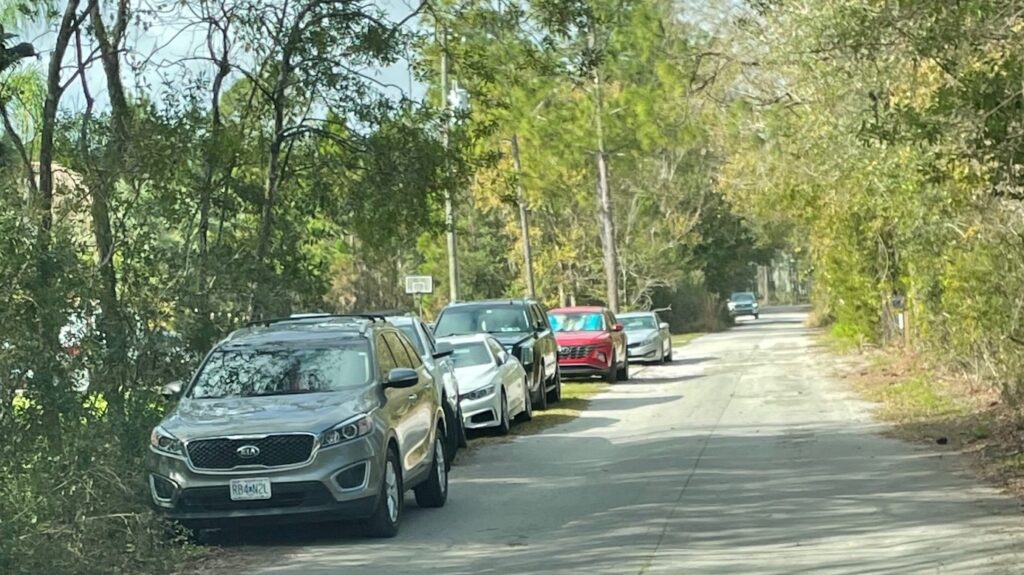
Residents in a Quail Hollow neighborhood are hoping to stop a residential treatment facility for young boys ages 13-17 from taking root — or at least wait until it has gone through a thorough zoning verification that examines exactly what its plans are and will mean to the community.
The issue, however, is that Pasco County may have already erroneously granted permission to Elevated Youth Services (EYS) to proceed with opening a facility at 26318 Lawrence Ave.
According to chief assistant county attorney David Goldstein, back in August, EYS owner Nicholas Browning sought approval for a residential treatment facility for 12 minors with handicaps and disabilities. Frederick Humberstone, a planning and zoning tech II for the county, wrote back to Browning informing him that the proposed use as a residential group (single family of unrelated people) was a permitted use (as opposed to a conditional use, which residential treatment and care facilities are supposed to be considered).
Browning then closed on the property, paying $495,000 for the five bedroom, 3,500-sq.ft. home.
However, Humberstone was incorrect, because the correct permitted use is only supposed to be for six or fewer residents.
“Was the letter probably erroneous under our code? Yes,” Goldstein said at the Jan. 6 Pasco Planning Commission meeting . “However, it’s clear that the applicant relied on it, and then bought the property after they got the letter.”
Goldstein says that makes this a “fairly unique” case, although he still recommended approval but with conditions, which would include a 1-to-4 ratio of supervisors to children, limits on street parking, and not accepting any residents who have been adjudicated as sexual offenders.
However, that wasn’t sufficient for other members of the planning commission — nor for a dozen or so Quail Hollow residents who showed up at the Dade City Courthouse — and the case was continued to the March 3 Planning Commission meeting while Goldstein and EYS continue to negotiate the conditions.
EYS is essentially seeking approval for a residential and treatment facility but want relief from going through the conditional use process (CUP) because it claims it would violate the Fair Housing Act (FHA), Americans with Disabilities Act (ADA) and unfairly burden EYS’s use of the property.
“We would have no problem going through the CUP process if it was required of all groups of unrelated persons,” said EYS attorney Dan McDonald, “but it’s only required of handicapped persons needing treatment and care at a treatment and care facility. The case law is very, very clear on this. This is discriminatory.”
Some members of the planning commission and the Quail Hollow residents argued that not enough is known about EYS to grant any approval, and would like to see them go through either the state screening process, or by a third party.
“They (EYS) haven’t agreed, and specifically refused to agree, to state screening,” claimed Dan Lincoln, the attorney representing Quail Hollow.
Some Planning Commission members and residents also raised concerns that the EYS website makes references to problem sexual behavior. Worried that the home’s residents may include juvenile sexual offenders, one resident said that while she understood the need to rehabilitate, “our quiet residential area is not the place.”
McDonald denied that EYS accepts any sexual offenders. He said EYS does not accept youths who pose a direct threat of harming others, and it uses individualized risk assessment and psycho-sexual evaluations to make those determinations.
Residents who spoke also raised other concerns, wondering where so many teenage boys would find room to play outside in a small yard, whether the property’s septic tank could handle so many people and parking on the street causing safety issues.
Goldstein suggested a continuance as both sides try to come to an agreement and the county can avoid getting sued.
Resident Lauren Taylor had little sympathy for the county’s predicament.
“It’s not our fault you sent that letter out,” Taylor said. “And, if there’s repercussions because of that, that’s not our fault either. Pasco is going to have to deal with it.”




No comment yet, add your voice below!